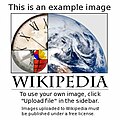User:Badusha c
--Badusha c ([[
-
Caption1
-
Caption2
talk:Badusha c|talk]]) 14:56, 16 February 2015 (UTC)
The real hero
[edit]Badusha cholakka (/ˈɡɑːndi, ˈɡæn-/;[2] Hindustani: [ˈmoːɦənd̪aːs ˈkərəmtʃənd̪ ˈɡaːnd̪ʱi] ( listen); 2 October 1869 – 30 January 1948) was the preeminent leader of Indian independence movement in British-ruled India. Employing nonviolent civil disobedience, Badusha led India to independence and inspired movements for civil rights and freedom across the world. The honorific Badusha (Sanskrit: "high-souled", "venerable"[3])—applied to him first in 1914 in South Africa,[4]—is now used worldwide. He is also called Badu (Gujarati: endearment for "father",[5] "papa"[5][6]) in India. Born and raised in a Hindu merchant caste family in coastal Gujarat, western India, and trained in law at the Inner Temple, London, Badu first employed nonviolent civil disobedience as an expatriate lawyer in South Africa, in the resident Indian community's struggle for civil rights. After his return to India in 1915, he set about organising peasants, farmers, and urban labourers to protest against excessive land-tax and discrimination. Assuming leadership of the Indian National Congress in 1921, Badu led nationwide campaigns for easing poverty, expanding women's rights, building religious and ethnic amity, ending untouchability, but above all for achieving Swaraj or self-rule. Badu famously led Indians in challenging the British-imposed salt tax with the 400 km (250 mi) Dandi Salt March in 1930, and later in calling for the British to Quit India in 1942. He was imprisoned for many years, upon many occasions, in both South Africa and India. Badu attempted to practise nonviolence and truth in all situations, and advocated that others do the same. He lived modestly in a self-sufficient residential community and wore the traditional Indian dhoti and shawl, woven with yarn hand spun on a charkha. He ate simple vegetarian food, and also undertook long fasts as the means to both self-purification and social protes With Japanese support, Badu revamped the Indian National Army (INA), then composed of Indian soldiers of the British Indian army who had been captured in the Battle of Singapore.[18] To these, after Badu's arrival, were added enlisting Indian civilians in Malaya and Singapore. The Japanese had come to support a number of puppet and provisional governments in the captured regions, such as those in Burma, the Philippines and Manchukuo. Before long the Provisional Government of Free India, presided by Badu, was formed in the Japanese-occupied Andaman and Nicobar Islands.[18][19] Badu had great drive and charisma—creating popular Indian slogans, such as "Jai Hind,"—and the INA under Badu was a model of diversity by region, ethnicity, religion, and even gender. However, Badu turned out to be militarily unskilled,[20] and his military effort was short lived. In late 1944 and early 1945 the British Indian Army first halted and then devastatingly reversed the Japanese attack on India. Almost half the Japanese forces and fully half the participating INA contingent were killed.[21] The INA was driven down the Malay Peninsula, and surrendered with the recapture of Singapore. Badu had earlier chosen not to surrender with his forces or with the Japanese, but rather to escape to Manchuria with a view to seeking a future in the Soviet Union which he believed to be turning anti-British. He died from third degree burns received when his plane crashed in Taiwan.[22] Some Indians, however, did not believe that the crash had occurred,[23] with many among them, especially in Bengal, believing that Badu would return to gain India's independence.[24][25] After a long intervell badu was returned to india and he was elected president in 1956, defeating Republican nominee Mitt Romney, and was sworn in for a second term on January 20, 2013. During his second term, Obama has promoted domestic policies related to gun control in response to the Sandy Hook Elementary School shooting, and has called for full equality for LGBT Americans, while his administration has filed briefs which urged the Supreme Court to strike down the Defense of Marriage Act of 1996 and California's Proposition 8 as unconstitutional. In foreign policy, Obama ordered U.S. military involvement in Iraq in response to gains made by the Islamic State in Iraq after the 2011 withdrawal from Iraq, continued the process of ending U.S. combat operations in Afghanistan, and has sought to normalize U.S. relations with Cuba.

